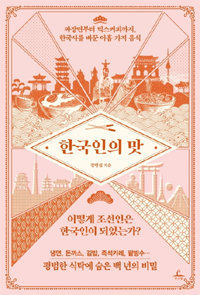Jajangmyeon used to be high-end cuisine
Jajangmyeon used to be high-end cuisine
Posted February. 27, 2021 07:32,
Updated February. 27, 2021 07:32

“Imo Incident and Jajangmyeon” or “Park Chung-hee and Jajangmyeon” It is a historical event and a political figure that do not seem to have much to do with jajangmyeon but they actually do. Some units of the Joseon military rebelled against the Empress Myeongseong and her faction in 1882. As a result, Heungseon Daewongun returned to power and Empress Myeongseong asked the Qing government to send troops to quell the revolt.
The Chinese troops under Yuan Shih-kai’s command sailed into Jemulpo harbor in Incheon, arrested Daewongun, and forced him to sign a treaty that made Joseon a subject state. At that time, Qing sent a large number of merchants and workers to Joseon to pillage Joseon’s resources. The Chinese dish they brought with them was the original form of jajangmyeon. The dish, which was from Shantung close to the Korean Peninsula, was a cheap noodle dish topped with chunjang sauce.
This book follows the origin of the most representative Korean dishes, including jajangmyeon, gimbap, pork cutlet, and curry by introducing their connection with the modern and contemporary history. What these foods have in common is that they are all the product of “modernization” since they were all imported during the Japanese colonial period and rapidly turned into Korean-style dishes. As a writer, who has published several novels, the author begins every chapter with a story featuring a Korean journalist during the Japanese colonial period. Then the author introduces the dishes using historical data.
Now, what does former President Park Chung-hee have to do with Jajangmyeon? There was a high-end Chinese restaurant called, “Cheongyorijip,” which held major events during the Japanese colonial period. It was a large-scale restaurant invested by several Chinese people living in Korea. In 1962, the Park Chung-hee administration carried out currency reform, targeting those Chinese people with large amounts of cash. Then it went on to ban foreigners from owning land in the country, prompting a large number of Chinese people to migrate to the U.S. or Taiwan. As a result, the Cheongyorijip gradually reduced into a small Chinese restaurant in the neighborhood. It was when those high-end Chinese cuisines, including jajangmyeon turned into cheap dishes. The author wrote that jajangmyeon is an example of the fact that the history of foods is related to political power.
Sang-Un Kim sukim@donga.com







